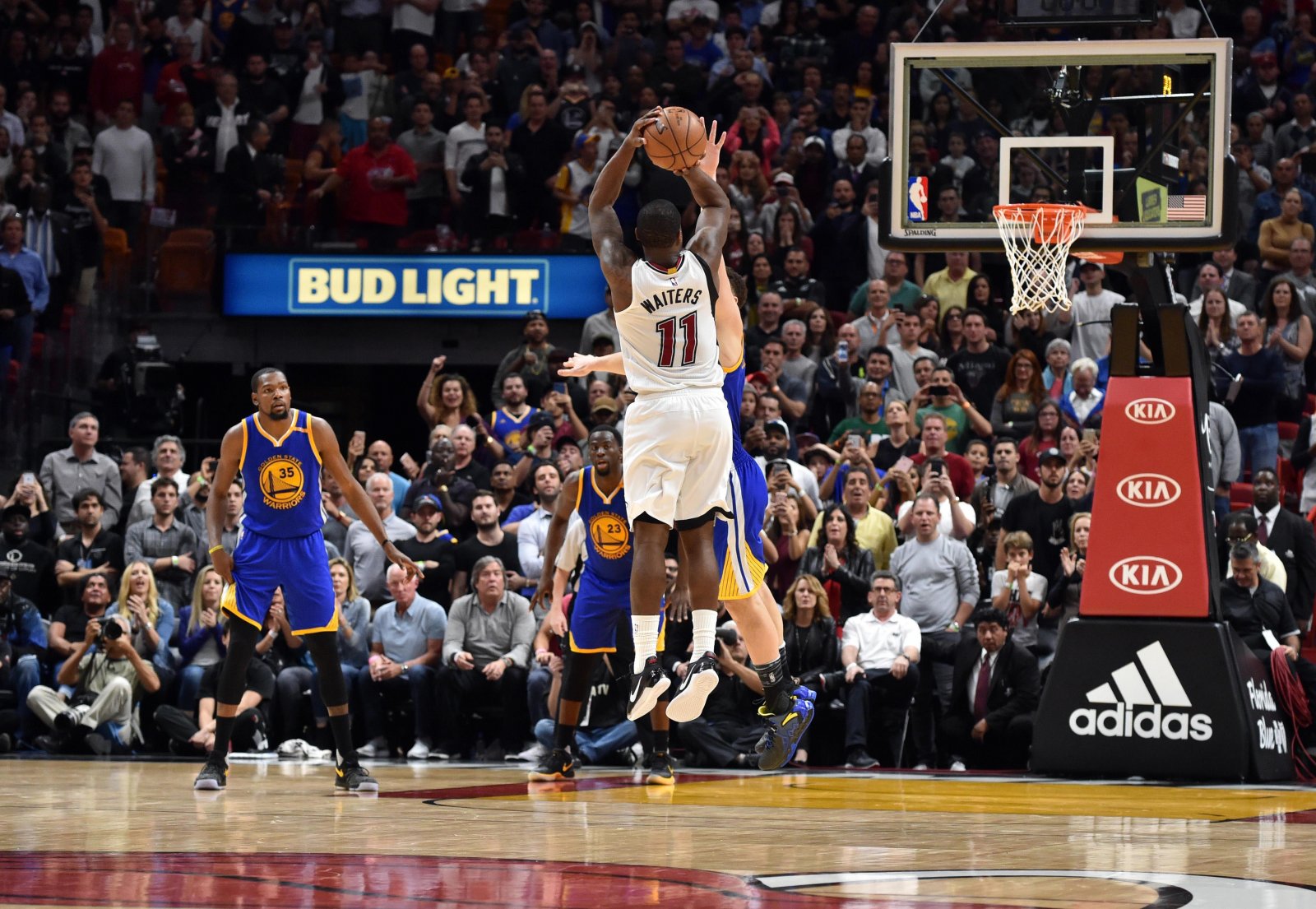The NBA killed Twitter wars, but were they right?
Rest in peace, NBA Twitter. Over the weekend, we laid the best of you to rest, never to be enjoyed again. Your life here was far too short, and we will remember you forever.
But in all seriousness, NBA Twitter took a blow late last week. Last Thursday, it was announced the the NBA had issued a memo to all 30 teams, reiterating the Twitter guidelines for official team accounts.
The memo reminded teams what they weren’t able to do, citing belittlement of an individual opponent or official, mimicking opponents or officials in a negative manner, and criticizing NBA officiating. The league stated that social media should be used for fun or light-hearted banter, not anything that could reflect poorly on players, teams or the league as a whole.
Given the nature of NBA Twitter, this move has probably been coming for a while. Many teams are highly active on social media, interacting with fans, posting live updates, and roasting opponents—most notably the Sacramento Kings.
The straw that broke the camel’s back came a week or so prior to the memo, when the Portland Trail Blazers trolled a Memphis Grizzlies player for an airball, which incited tweets between two players—a so-called “Twitter war”.
@trailblazers good luck in the lottery show this year✊????
— Chandler Parsons (@ChandlerParsons) January 28, 2017
The NBA is famous for its social media presence—a presence that has made it the number one sport in the United States online. Most NBA teams take social media beyond a public relations mouth piece. They offer unique behind-the-scenes access and funny content, often at the expense of an opponent.
This social media presence has set the NBA apart for several years. It’s a presence the NFL only dreams of. When teams take Twitter to the next level, they create a voice for the franchise. And this voice brings in countless new fans. Making accounts personable is the best marketing tool a league has.
The most interesting part of the NBA’s social media presence is the success of certain teams. The Philadelphia 76ers, Sacramento Kings, and Portland Trail Blazers—some of the best Twitter accounts in the NBA—all rose to popularity when they were truly awful. These were the teams that had to market the hardest. When the team is losing on the court, they have to be winning off of it to be relevant to fans. An interactive, funny social media presence keeps fans interested when the 76ers are setting new records for losses every season.
This vicious, quick-witted incarnation of Twitter helped grow the NBA to the presence it currently is on social media. When tweets from teams are making SportsCenter, it draws attention to the league. This is precisely why this Twitter memo is a bad idea.
The spirit of the memo is solid, and even necessary. Teams shouldn’t be mocking opposing teams or players on the basis of race, ethnicity, religion, or any other personal trait. But team Twitter accounts were pretty far from doing any of these things.
These teams were mocking each other, and it was hilarious. When the NBA stops teams from publicly roasting each other, they’re stopping one of the most successful, unique marketing tools the league has. As great as vines of Steph Curry’s warmups are, they will never be as funny as the Sacramento Kings going after teams that are better than them in literally every way.
This one's for the Land… pic.twitter.com/GiJ2wSEoOZ
— Sacramento Kings (@SacramentoKings) January 26, 2017
That’s not to say that NBA Twitter is done. Teams can still interact with fans, crack jokes, and share behind-the-scenes footage. They just won’t have their funniest tool.
NBA team accounts are already poking fun at the memo. In their first game after the memo, the Sacramento Kings reacted by excessively praising the Atlanta Hawks for everything from a recent three pointer to their jerseys.
Of course, other leagues are having fun with the memo, too. This past weekend, the Dallas Stars and Nashville Predators of the NHL had a game, and what started as chirping aimed at the Twitter memo ended with the Cleveland Indians smacking down the Sacramento Kings in an interaction involving NHL, MLB, and NBA teams.
.@SacramentoKings It's been 14 years since you had a lead in a playoff series. pic.twitter.com/regURNC7gd
— Cleveland Indians (@Indians) February 13, 2017
But other leagues could learn from the NBA. No other league even approaches the NBA in terms of social media savviness, even if they’re much more popular overall. In particular, football leagues could learn from the NBA.
Football is a globally popular sport, but if it were to properly harness social media, it could reach even more fans than it already does. Many football teams have a solid presence on Twitter, but it’s time to take it to the next level. Strong content is good in terms of building fans, but interaction and humor are even better.
There are a few teams that do this well. In the Premier League, Manchester City has set itself apart as a successful Twitter account. The team creates funny content and interacts with both fans and other teams. The team isn’t quite at the level of pettiness the NBA has cultivated, but they have engaging content.
Another notable example of this is Bayern Munich’s United States Twitter presence. In an effort to increase the reach of the team, the club has created a US Twitter account, and they’re on fire. Whether they’re taking a cue from the NBA or are just naturally funny, they’re doing everything they should be. As a Bundesliga team, they’re at a disadvantage in the United States. But if their Twitter keeps going down its current path, they won’t be at a disadvantage for long.
. @MysteryMartial To Europa League? Looks like there's already enough dabbing down there. ???? pic.twitter.com/oVwi9lpwLL
— FC Bayern US (@FCBayernUS) February 6, 2017
All football teams should start interacting with fans, players, and teams in the way the NBA has come to be known for. Some teams have started down this path, but few have the speed, creativity and quick wit that could let them take the next step.
It’s time to look at so-called “Twitter wars” as part of a successful Twitter strategy, not a nuisance or embarrassment to a team. These interactions go viral and introduce new people to a team. They create a positive buzz in media, both sports and wider categories, that can be harnessed to increase a team’s platform.
The NBA should be embracing these interactions. But just because they’re not doesn’t mean other leagues can’t or won’t. It’s time for other leagues to step up to the level of the NBA. They only stand to gain in a world where social networks are a dominant force in media.
About author
You might also like
SPORTEL 2021: Day One Recap
This year’s prestigious SPORTEL convention kicked off in sunny Monaco today, welcoming a host of familiar faces as well as plenty of new ones. Doors opened at 8:30am with businesses
Six Founding Riders Set To Bring The Vision Of The UCI Track Champions League To Life
Olympic Champions, UCI World Champions and World Record holders join the new track cycling competition debuting in November 2021 The UCI Track Champions League is delighted to announce that six
Sports related spending to soar this summer as pre-pandemic life resumes
New insights from eBay Ads UK reveal the potential for brands to engage with an excited but nervous nation as sports events get back on track As pubs and indoor








